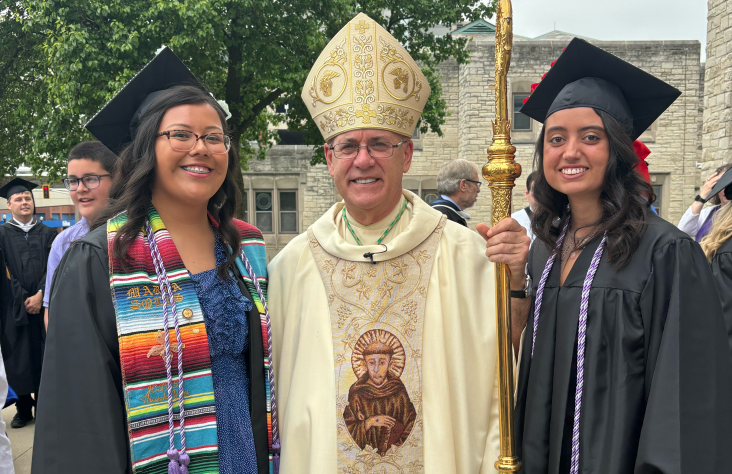January 11, 2017 // Uncategorized
God redeems His people through His Son
By Msgr. Owen Campion
Second Sunday In Ordinary Time
John 1:29-34
The Book of Isaiah furnishes this weekend’s first reading from the Scriptures. Relief and joy uplifted the atmosphere; hopes centered upon a bright future, all because of the fact that after the humiliation, uncertainty and anguish of being conquered by Babylonia, and then after generations of exile in Babylon for many, God’s people were entering a new day of return to their homeland and hopefully to lives of prosperity and security.
Lest anyone think this fortunate turn of events was the mere outcome of changing politics or luck, the prophet eloquently insisted that the plight of the people was improving because of God’s direct and merciful intervention into human affairs. God brought their relief. God promised to protect and sustain the people, despite the misfortunes that might befall them. God was faithful. In turn, the Hebrews, God’s people, human instruments on earth of the divine will, were faithful during their years of trial. They never succumbed to the paganism of Babylon.
For its second reading, the church this weekend selects a passage from St. Paul’s First Epistle to the Corinthians. Today the apostle Paul ranks among the greatest Christian figures of all time, and certainly he stands as a most extraordinary figure in the development of Christianity during the crucial time of the first century A.D.
Attaining this distinction was not without personal cost for Paul. He had to contend with converts to Christianity who were not always loyal to the Gospel. The very culture in which they lived not only surrendered without a whimper to human instincts but also elevated these instincts literally to the level of the divine, delighting in lust, gluttony, drunkenness and so on. The Christian converts in Corinth, then one of the major cities of the Mediterranean world, literally were awash in this culture.
Another burden for Paul was that he had to defend his very credentials to preach the Gospel. He had to insist that Jesus had called him to be an apostle.
The last reading is from St. John’s Gospel. The author of the fourth Gospel was attracted to John the Baptist, possibly coming from a group influenced by him. Among John the Baptist’s qualities was his absolute intellectual and religious honesty. He was fearless. He thoroughly believed that God had called him to be a prophet. So, St. John’s Gospel presents John the Baptist in the most admiring terms.
In this reading, John the Baptist saw Jesus in the distance and acknowledged Him as the Redeemer. The element of sacrifice was vividly present. John identified Jesus as the “Lamb of God.”
Finally, treasured Old Testament symbols testified to the identity of Jesus. The dove descended from the sky, from heaven, to rest upon Jesus. God is in Jesus.
Reflection
At Christmas the church excitedly told us that Jesus was born. Son of Mary, Jesus was a human, as are we. The shepherds, representing all humanity, adored Jesus.
At the Epiphany, the magi found Jesus after searching for God. To assist them, God led them and protected them. In Jesus, they found God.
At the baptism of Jesus in the Jordan the church introduced us to Jesus as the Savior of doomed humankind. In Jesus, humans would have access to eternal life.
Now, continuing the process, John the Baptist, so reliable and so insightful in his holiness, proclaimed Jesus as the Lamb of God. In all these settings, the church carefully puts before us the person of Jesus the Lord and tells us about Jesus. It invites us to follow Jesus. It invites us to know Jesus. He is one of us. He spoke to us. He died for us. We only must wish to know the Lord.
The best news. Delivered to your inbox.
Subscribe to our mailing list today.





